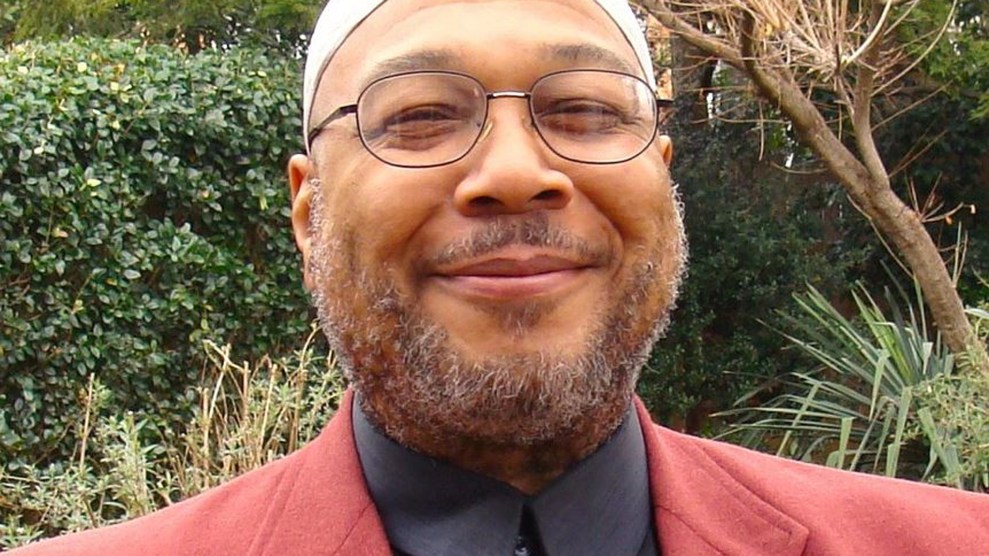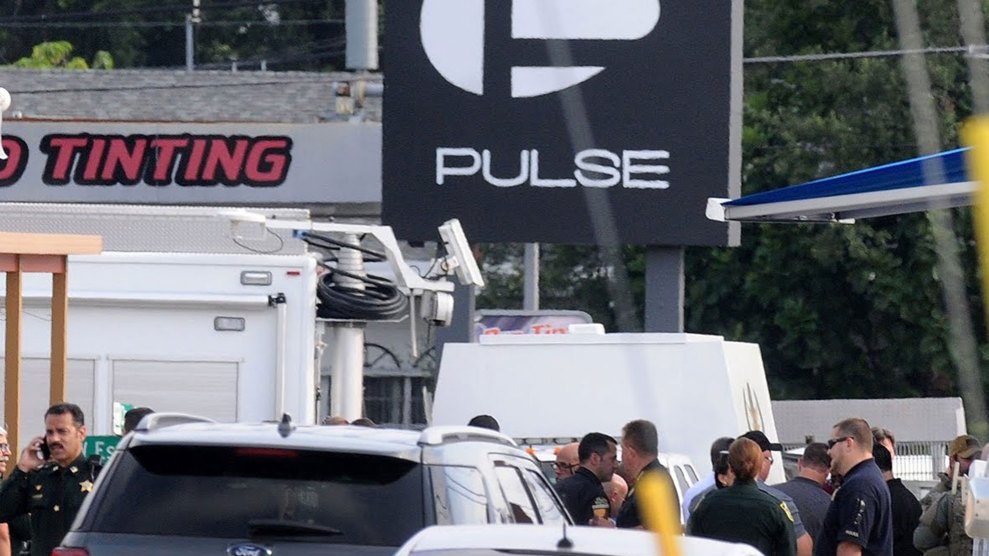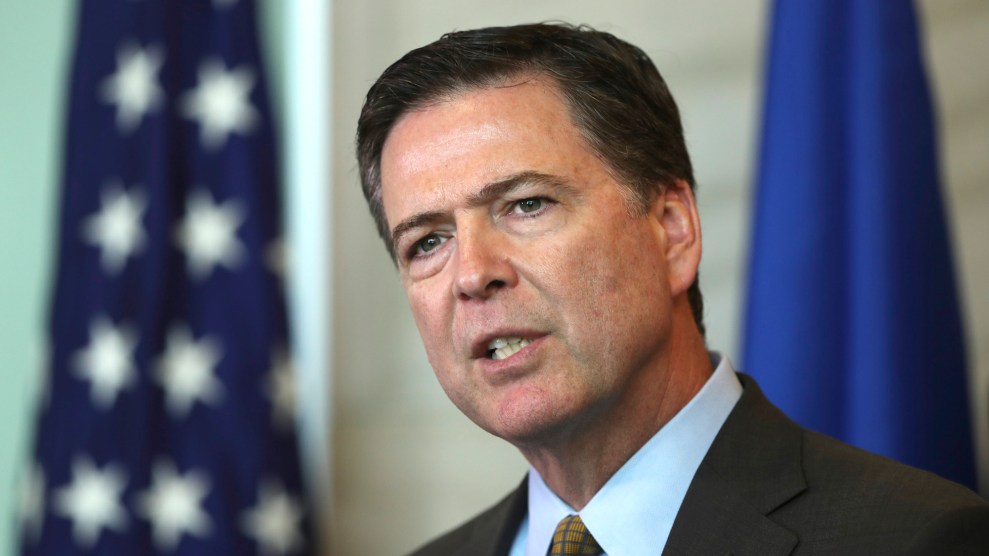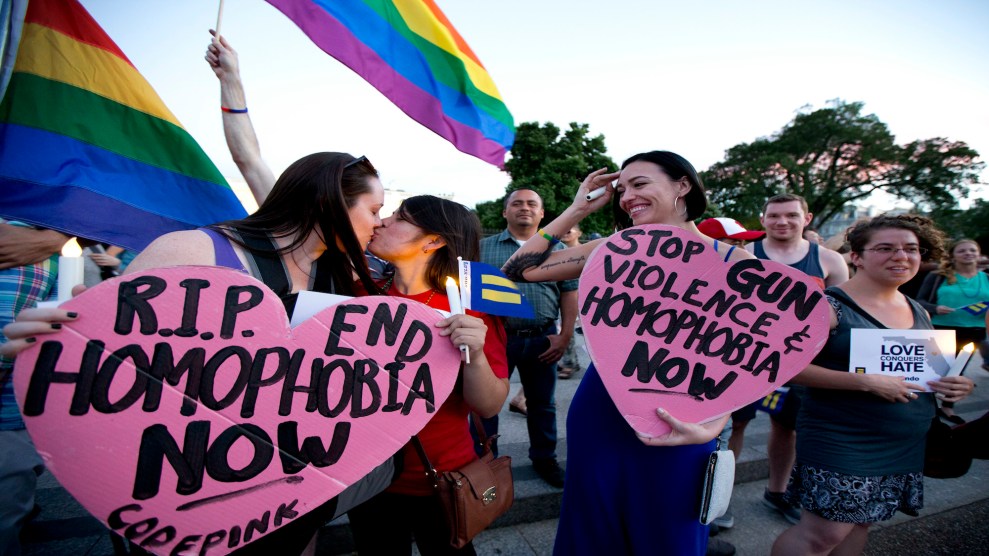
Imam Daayiee AbdullahCourtesy of Imam Daayiee Abdullah
Since this weekend’s shooting that killed 50 people at a gay nightclub in Orlando, Muslim advocacy groups have denounced the gunman, who is of Afghan descent and claimed an allegiance to ISIS, as un-Islamic. In the immediate aftermath, the Council on American-Islamic Relations in Florida, along with other Muslim and interfaith leaders, urged local Florida Muslims to donate blood to support the victims who were wounded. A dozen Islamic groups have raised more than $50,000 for the families of the those who were killed. On Monday, the Muslim American Women’s Policy Forum organized a vigil in Washington, DC, to denounce homophobia, transphobia, and Islamophobia.
Queer Muslim Americans have also been weighing in. Samra Habib, a writer and founder of Just Me and Allah: A Queer Muslim Photo Project, warned readers in the Guardian against conflating Islam with homophobia. Meanwhile, Bilal Qureshi, a former editor and producer for NPR, criticized what he called the “Muslim silence on gay rights,” arguing that even progressive Muslims have been slow to take up the mantle of LGBT equality.
Among those lending their voices to the public discussion of Islam and gay rights is Daayiee Abdullah, the first openly gay imam in the United States. In 2002, Abdullah was the only local imam in Washington, DC, who agreed to perform funeral rites for a Muslim man who died of AIDS. Since then, he has been a prominent advocate for a progressive form of Islam, one that welcomes LGBT worshippers and encourages mixed-gender prayer.
Abdullah grew up a Southern Baptist in Detroit and converted to Islam after studying in China among Uighurs. He has lived in Egypt, Jordan, and Syria and studied some of the earliest translations of the Koran in their original languages. Mother Jones spoke with Abdullah about the Orlando massacre and what it means for queer Muslims. The interview has been edited for length and clarity.
Mother Jones: What was your reaction when you heard about the Orlando shooting?
Daayiee Abdullah: Well, I’ll put it in context. Last week was the celebration of Muhammad Ali, a perfect example of a hero and an American Muslim. For me, as a black American Muslim, he was the epitome of following his faith to the best of his ability. Then, Saturday afternoon, I did a wedding for an interfaith couple, a Muslim woman and a non-Muslim man. I woke up expecting a leisurely Sunday morning, and someone calls me at 9 and says, “Have you seen the news?” I tuned in and saw that this massacre had occurred. My first thought was, “Oh my god, I hope it’s not a Muslim.” And then of course the name Omar came out, and I thought, “Oh my god, ‘terrorism’ is going to be called left and right.” The bottom of my heart fell out. Luckily, we didn’t see the LGBT community accusing the Muslim community of homophobia and Islamophobia running rampant. Gay and Muslim rights advocates are working together to deal with this issue. Though the gunman may have killed 50 people and injured as many, the reality is that’s not going to stop those communities from cooperation and continued growth.
MJ: Did any of your gay or transgender followers come to you for guidance after the news broke? I imagine they might feel doubly vulnerable, to both Islamophobia and homophobia.
DA: Luckily there are other organizations and other people now. Fifteen years ago, I was the only one of a handful of people that provided this type of counseling. It doesn’t all fall on my shoulders now, and I’m thankful for that. But yes, there are people out here who are seeking comfort. I’ve told them that we can’t let fear control us and not face the challenge before us. Don’t let fear become bigger than life.
MJ: In an interview with the New York Times yesterday, former Democratic Representative Barney Frank (who is openly gay) said, “[T]here is clearly, sadly, an element in the interpretation of Islam that has some currency, some interpretation in the Middle East that encourages killing people—and LGBT people are on that list. And I think it is fair to ask leaders of the Islamic community, religious and otherwise, to spend some time combating this.” Do you agree with that?
DA: I can agree with him that there are some people that are behind the times. But to indicate that there are some groups of people that are more violent than others, I think, is a way to say, “We’re not as bad as them.” Yet there was also a white guy who was taking explosives to a Los Angeles pride event. Why haven’t we been talking about that as well? I know Barney. What it says to me is that he’s trying to be reasonable. But I think that he’s a white man who just doesn’t know.
MJ: What do you say to people who point to these incidents to argue that Islam is more violent or intolerant than other religions?
DA: When I get people who make those comments, I tell them: Just read the Bible. Sit [the Bible and the Koran] side by side and see which is more violent than the other. I would remind them that these books were written in the context of a particular time.
MJ: Just to be clear, is there any directive in the Koran to commit violence against gay people?
DA: None whatsoever. In fact, there are things in there that identify that gay people exist. In chapter 24, verse 31, there’s a statement that says [a woman may take off her veil in front of] men who have no desire for women. So there are men who do exist who have no desire for women. That doesn’t necessarily mean they have an interest in men, but scholars often interpret it to mean those men who don’t have sexual knowledge. That’s not what the Koran says. Also, in 24:60, it talks about women who lay hallow and who are non-reproducing. That means both women who may not be able to procreate as well as those who choose not to. Lesbians tend to fall into that category as well. So the breadth of what the Koran could potentially mean is always narrowed down into a sexual binary, and that’s really cultural. Arab culture is often based on sexual binaries.
MJ: In the past, certain local imams have refused to greet you and have challenged your interpretation of the Koran. Does that still happen, or have things changed for you?
DA: Just to give you an example, yesterday was the first time that any major Muslim organization contacted me to participate in a public statement. So there’s a turning of the tide, so to speak. I think people see that I’m doing what the Koran encourages, which is to help people who need guidance, and this is something that most have not been doing. I think on the last day, Allah’s going to ask them, “Why didn’t you do what you knew was right to do?” They’re going to be challenged to understand that just because they have a particular belief [that homosexuality is wrong] doesn’t mean that they are the only interpreters of the Koran.
MJ: The Public Religion Research Institute did a survey last year that found that 42 percent of Muslims supported same-sex marriage. That was higher than white evangelicals but lower than every other faith group that was polled. Why do you think religious Muslim communities have been slow to embrace different sexual identities?
DA: [It comes down to] cultural views of Islamic religion. Culture supersedes religion and dictates how religion and religious laws are imposed. I think the work of myself and other queer Muslim activists have helped people better understand that what they’ve been taught is a cultural manifestation of what the Koran means. Those ideas that they may have been raised with or taught in the mosque don’t have real standing out in the general public. People can still be Muslim and LGBT. And when you get to know someone for who they are, you get to know them for who they are. That changes how you may have once understood them to be.
MJ: Barney Frank also told the Times that the Orlando attack “reinforces the case for significant surveillance” of people who have given some indication that they have adopted extreme Islamist views. He also said he wished the FBI had continued to monitor the gunman: “If they had continued to surveil him, that would have led to some ACLU criticism—and they would have been wrong. I wish they had surveilled him more, not less.” What do you think about that reaction?
DA: Barney Frank knows directly what it means to be surveilled. He’s been in the government. He was there during the McCarthy period and saw when gay people were run out of the government. [Editor’s note: Joseph McCarthy died in 1957, when Frank was 17 years old.] How dare he make such a statement? I know the man, and to make that comment shows me that there’s something about his politics that is despicable. For him to pit one minority group against another minority group, there’s a problem there.
MJ: You came of age in the 1970s, which was a time that was marked by both the rise of the gay rights movement and heightened violence against queer folks. There was the 1973 arson attack on a New Orleans gay bar, and there was the serial killer in California who targeted young gay men. Was there one event in particular from that period that affected you strongly?
DA: One thing that did influence my activism in the LGBT community was Harvey Milk. I was living in San Francisco at the time, and I worked as a volunteer for his campaign. When he was murdered, it definitely influenced me. It also taught me that under the right conditions, gay people can become politicians and be in control of their lives in a much broader way through activism.
MJ: It’s unsurprising then that Abdelilah Bouasria, an Arabic professor at the University of Montana, once called you the Harvey Milk of the queer Muslim community.
DA: [Laughs.] I appreciate the association.
MJ: The last thing I wanted to ask you about was your own faith. What section of the Koran have you turned to to make sense out of the Orlando shooting?
DA: Well, a couple of them. I’m not one who learned the Koran through recitation as a child, but one thing that always stands out is that there’s no compulsion in religion. You can’t tell people how to believe. It is an individual’s relationship with their creator, and human beings should not be in the business of trying to tell others how they should live their lives. And the killing of an innocent is as if you killed the whole world. This gunman utilized the things that he had available to him to cause harm to a large number of families. That is not part of the Koranic ethics that are promoted. That attack wasn’t from an Islamic perspective. It was one of politics. It was one of political Islam, if you will, rather than the ethical Islam.
















